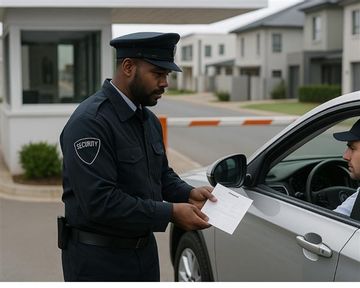What every buyer should know before signing an Offer to Purchase
The process of buying a home involves several critical steps, one of the most important being the signing of an Offer to Purchase (OTP). Understanding its legal implications and the necessary steps that follow can save both buyers and sellers from costly mistakes.
What is an Offer to Purchase?
An Offer to Purchase (also known as a sale agreement) is a legally binding document that outlines the terms and conditions of the property sale. Once signed by both the buyer and the seller, it becomes a contract that governs the transaction. The OTP typically includes essential details such as:
-
Description of the property
-
Purchase price
-
Personal details of the buyer and seller
-
Conditions of sale (e.g., subject to financing approval)
-
Date of occupation and occupational rent (if applicable)
-
Fixtures and fittings included or excluded from the sale
Can a buyer cancel an Offer to Purchase?
Cancelling an OTP is possible, but it often comes with financial penalties. If the buyer wishes to withdraw after the seller has accepted the offer, they may face costs such as a 'roukoop', a fee to compensate the seller for the cancellation. However, certain conditions in the OTP, if unmet (e.g., failure to obtain financing), can allow the buyer to withdraw without penalty.
In cases where the property is sold for less than R250,000, the buyer has a five-day cooling-off period to cancel the OTP without facing financial consequences.
Can a seller cancel an Offer to Purchase?
Similarly, sellers are bound by the agreement and may face penalties if they withdraw from the sale. However, sellers often include a 72-hour clause, which allows them to accept a better offer if the current buyer doesn’t meet certain conditions within a 72-hour period.
What are an agent’s responsibilities in the Offer to Purchase process?
Estate agents play a pivotal role in the OTP process. Their responsibilities include ensuring that the offer is in line with the property’s market value and that all known faults or defects are disclosed. Estate agents must also comply with the Property Regulatory Authority's regulations, making sure that both buyer and seller are fully informed before signing the OTP.
The home buying process after signing the Offer to Purchase
Once both parties sign the OTP, several steps follow to complete the sale.
1. Applying for a home loan
After the OTP is signed, the buyer applies for a home loan. The bank will assess factors such as the buyer's credit record, income, and the loan term to determine whether to approve the loan. Using a service like MyProperty Home Loans allows buyers to compare multiple offers from different banks.
Along with the OTP, buyers will need to provide:
-
A valid South African ID or passport
-
Recent payslips or proof of income
-
Latest bank statements
These documents allow the bank to assess your financial standing before granting a loan.
2. Bond registration
Once the loan is approved, the bank appoints a bond attorney to handle the bond registration. The buyer is responsible for paying a bond registration fee, which depends on the value of the property.
3. Transfer of property
The seller’s conveyancing attorney manages the transfer of the property to the buyer. The buyer covers transfer costs, including the attorney's fees and any transfer duty.
We cover all kinds of property taxes, including transfer duty in our guide here.
4. Title deed registration
The property’s title deed is registered in the buyer’s name at the Deeds Office, making the buyer the official owner. The bank keeps the title deed until the home loan is paid off, though copies can be requested.
Special conditions in the Offer to Purchase
Both buyers and sellers may negotiate specific clauses in the OTP. Common conditions include:
-
Occupational rent: If the buyer moves in before the transfer is complete, they may need to pay rent.
-
Financing condition: Buyers often include a condition stating that the sale is subject to home loan approval.
-
72-Hour clause: As mentioned earlier, sellers may include this clause to keep their options open if a better offer comes along.

